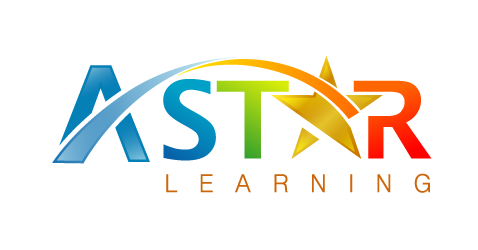Words carry power; more than we often realize. From the classroom to the boardroom, the language we use can either build confidence or break it down, inspire growth or reinforce self-doubt. For students, particularly those in formative years like Grades 6 to 9, the impact of positive speech, affirmations, and motivational language can be transformational.
At A-Star Learning, we’ve seen how a simple shift in language, both from tutors and from students themselves can significantly influence academic engagement and emotional well-being. This isn’t just an abstract concept; it’s backed by research in psychology and neuroscience. Positive affirmations activate the brain’s reward centers, promoting resilience, motivation, and goal-setting behaviours. Essentially, the words we speak shape how we think, how we feel, and what we believe we’re capable of.
See also: Understanding Learning Challenges in Children: Signs, Support, and Success Strategies
When a student hears, “You’re not good at math,” it becomes a label they internalize. But when they’re told, “You’re learning every day, and you’re making progress,” they’re more likely to persist, even when the going gets tough. In this way, motivational language acts like scaffolding; it supports students as they build confidence, skills, and self-awareness.
Positive self-talk is equally important. We are often our own harshest critics. It’s the same for students, particularly in competitive or high-pressure academic environments. Teaching them to replace negative inner dialogue with encouraging phrases like “I can improve with practice” or “I will figure this out” helps develop a growth mindset. Over time, these internal affirmations become a steady inner voice that guides them through challenges, not just in school but throughout life.
See also: 5 Resolutions for High-Achieving Students to Boost Their Success
As parents and as educators, we play a central role. The words we model are often mirrored by the children around us. When we speak with hope, patience, and encouragement, we teach our wards to do the same for themselves and for others. This contributes to a more emotionally intelligent and resilient learning environment where they feel safe to take risks, make mistakes, and grow.
At A-Star, our tutors are trained not just to teach academic subjects, but to nurture confidence through positive language. Whether it’s a reading milestone, a science breakthrough, or a moment of struggle in math, we believe that every step forward deserves recognition. We celebrate effort as much as achievement, because we know that progress is more than just a grade, it’s a mindset.
We encourage you to speak life, speak potential, and speak progress.
Because sometimes, all it takes is a few kind words to help a child believe they can.
See also: Effective Strategies for Supporting Students with Learning Disabilities

